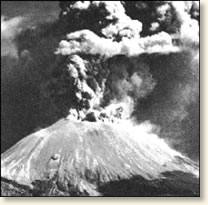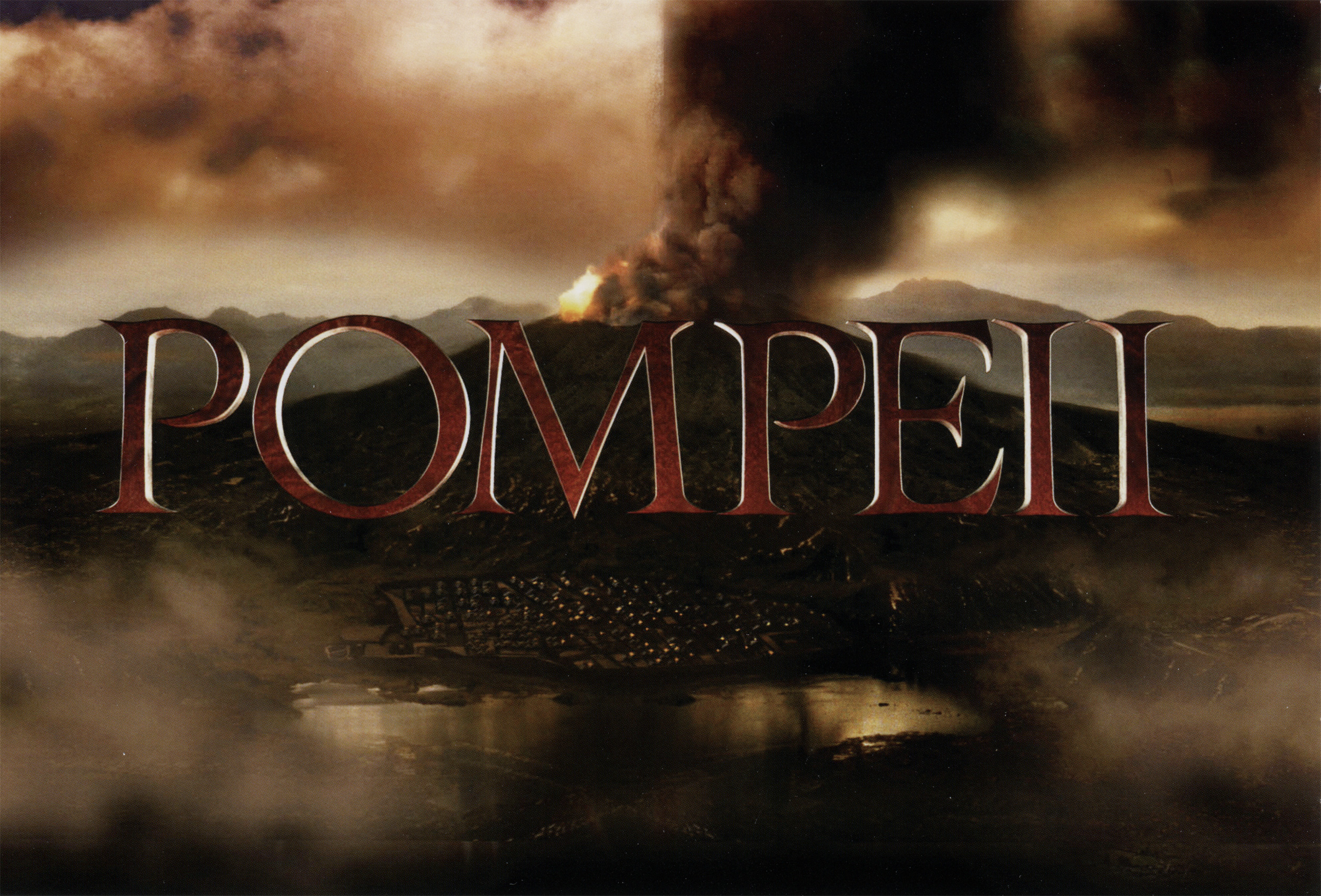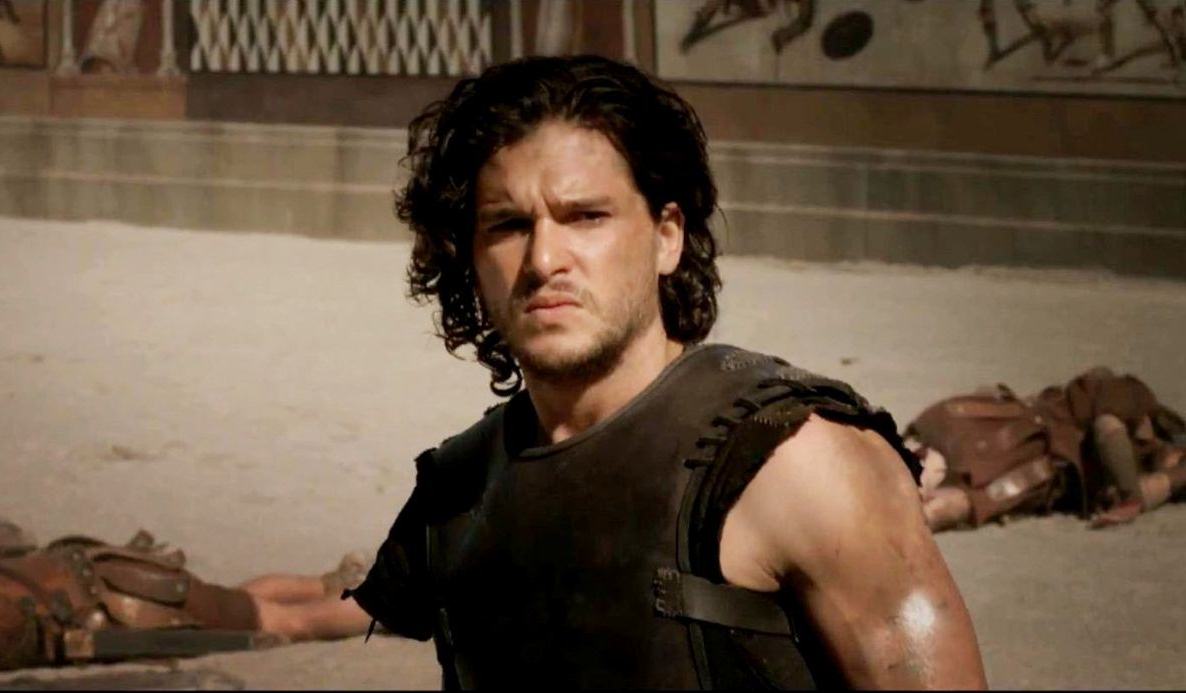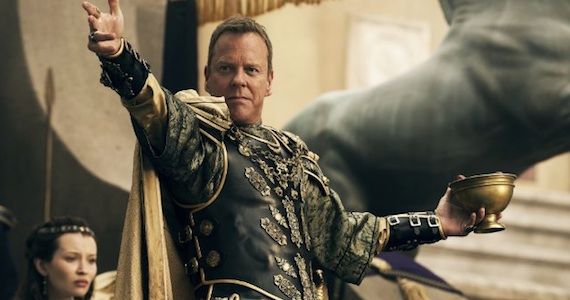BY KIMBERLY BENNETT
Co-Editor-in-Chief

One of the world’s earliest natural disasters recorded in history. The volcano destroyed two of its surrounding cities in Southern Italy, covering Pompeii and Hurculaneum in ashes. Some scientists believe Mount Vesuvius to be the world’s most dangerous volcano, yet—even in its dormant state—more people live within its vicinity than any other active volcano. Even though the volcano has erupted many times since 79 AD (the last being in 1944), the mountain of lava is sure to flare up in flames once again.
Who knows what kind of volcanic activity Mount Vesuvius might have in store next?
One day, film director, Paul W.S. Anderson, decided to take on the challenge of directing an epic story, transforming Mount Vesuvius’s legacy into a magnificent and highly well-portrayed film, POMPEII.

Mostly everyone has at least heard of Mount Vesuvius and its destruction, but as far as what exactly happened on Aug. 24, 79 AD, the details are unclear. Anderson’s POMPEII represents a story woven around the destruction created by Mount Vesuvius, but it focuses on the city of Pompeii, Italy—a once-flourishing metropolis five miles from the volcano.
POMPEII opens in 62 AD, when a Roman senator, Senator Corvus (Kiefer Sutherland) and his battalion kill off inhabitants of the Celtic village of Horsemen. After witnessing the senator murder his parents in cold blood, a nameless boy hides within the many dead bodies of his fallen people in order to avoid being killed. Hours after the soldiers leave, he climbs out of the mountain of bodies, and leaves his village in search for a new home. As he wanders through the lands of Brittannia, a group of slave handlers kidnap and take him into slavery, training him to be a gladiator.

Kit Harington
Google Images
Seventeen years later, in Londinium, the capital of Britannia, that same young boy, now known as ‘The Celt’ (Kit Harington), is put on the spot and forced to fight. Surprisingly, he defeats three gladiators in seconds—intriguing a slave-owner, Graecus (Joe Pingue). Graecus buys ‘The Celt,’ and sets out to Pompeii with the rest of his slaves, accompanying Princess Cassia (Emily Browning) and her lady-in-waiting, Ariadne (Jessica Lucas) along the way. Before reaching their destination, one of the horses pulling the princess’s carriage falls. Even in shackles, ‘The Celt,’ tries to help the animal, but guards hold him back. Princess Cassia, however, requests for the slave to tend to the horse.

Emily Browning
Google Images
Unfortunately, the horse’s leg breaks, and ‘The Celt’ asks for the princess’s permission to put the creature out of its misery. Upon Princess Cassia’s word, he gently and quickly snaps the horse’s neck, forcing the guards to retrieve another steed to pull the carriage.
Just when Princess Cassia starts to enjoy being away from Rome after her arrival to Pompeii, her worse nightmare comes to life. Senator Corvus—the man she has been trying to escape from—rolls into Pompeii with hopes of returning back home with Cassia as his wife. When the princess refuses his proposal, he threatens to dissolve the deal he had made with her father, Severus (Jared Harris). Not wanting the senator to disband their deal, Severus forces Cassia to accept.
A few days after the senator’s arrival, Mount Vesuvius creates a loud earthquake, but everyone ignores it. However, Cassia’s personal horse does not. The animal runs wildly within its stable, and there is only one person she can think of to try and calm the steed. She calls upon ‘The Celt,’ and asks him to tend to her horse. Surprisingly, he is able to calm the stallion with ease, and it does not take long for Princess Cassia to develop feelings for her horse’s savior.
‘The Celt’ quickly falls in love with the princess as well. Using his feelings for the princess to drive his strength, he manages to fight well in the gladiator practices and matches. He even finds an opponent / friend worthy of his strength, Atticus (Adewale Akkinouye-Agbaje)—a gladiator who, after one more battle, is supposed to earn his freedom.

Kiefer Sutherland
Google Images
Jealous of ‘The Celt,’ Corvus sentences him as well as all of the other gladiators (including Atticus) to a death match, reserved for the date: Aug. 24, 79 AD. Before the match, the audience finally learns of ‘The Celt’s’ real name—Milo—when he reveals it to Atticus. After long minutes of battling, the worst of Milo’s problems has yet to come. Pompeii feels another roaring earthquake, but this time, the damage is far more severe. The city’s buildings start to subside, the gladiator stadium begins to crack and the streets of Pompeii begin to collapse.
One final rumble resonates through the sky before all of Pompeii stands completely still, and looks toward Mount Vesuvius. As soon as balls of fire and lava begin spitting towards the city, the people of Pompeii start to run for their lives.
Hell on Earth has started, and for Pompeii, the eruption of Mount Vesuvius is only the beginning of the inevitable end.
Will Anderson change up the story, and give the film’s romantic protagonists a happy ending? Or will Milo and Princess Cassia assume the same fate as the rest of Pompeii?
POMPEII came out in theaters Feb. 21, 2014, and as of right now, is only playing in selected theaters. If you do not want to wait until the movie comes to DVD, find a movie theater still playing the film, and experience the volcanic eruption of Mount Vesuvius like never before!
*
**
***
“You could hear the shrieks of women, the wailing of infants, and the shouting of men; some were calling their parents, others their children or their wives, trying to recognize them by their voices. People bewailed their own fate or that of their relatives, and there were some who prayed for death in their terror of dying. Many besought the aid of the gods, but still more imagined there were no gods left, and that the universe was plunged into eternal darkness for evermore.”
–Pliny, the Younger
–Description written a few years after Pompeii’s destruction.
Translator: Betty Radice (1969)
POMPEII‘s Trailer: